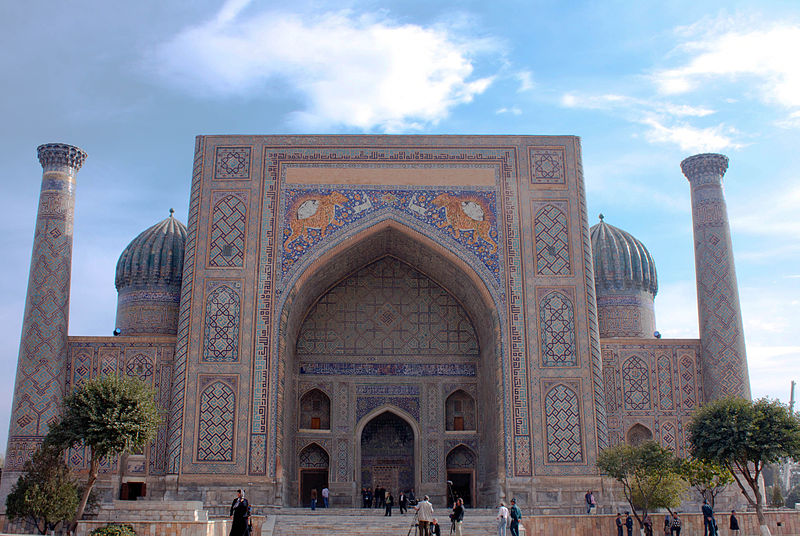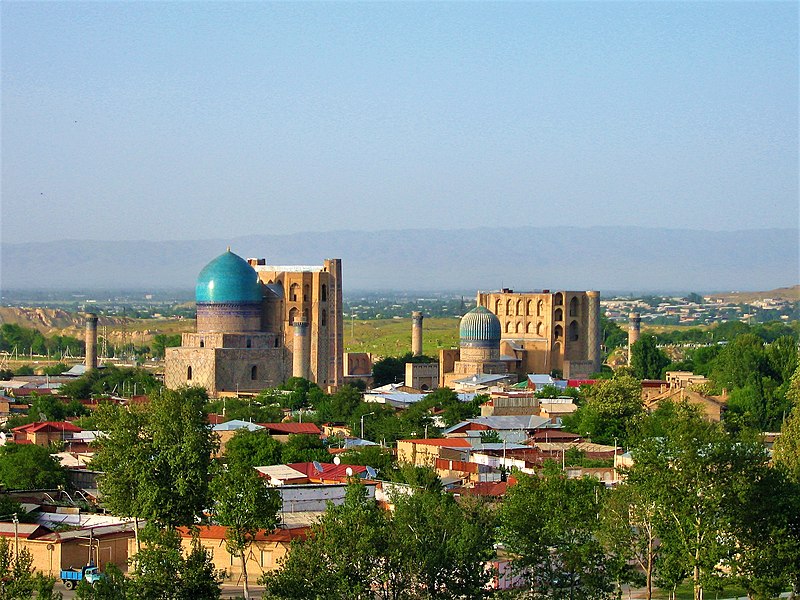Difference between revisions of "Adopting from Uzbekistan"
(→Who Can Adopt) |
(→Who Can Be Adopted) |
||
| Line 73: | Line 73: | ||
=Who Can Be Adopted= | =Who Can Be Adopted= | ||
| + | In addition to U.S. immigration requirements, Uzbekistan has specific requirements that a child must meet in order to be eligible for adoption: | ||
| + | |||
| + | |||
| + | '''[[Relinquishment]]:''' Minimum legal requirements must be met prior to the issuance of an [[Adoption Decree|adoption decree]] by a court. One such requirement is that a child who has been placed with social services by his or her parents must remain in an orphanage for at least one year before becoming eligible for adoption. However, if there is a legal finding that the parents are “missing,” “deprived of [[Parental Rights|parental rights]],” “legally incapable,” or “deceased,” the one-year rule does not apply. In the case of missing parents, a competent authority must make a reasonable effort to locate the birth parents to satisfy U.S. and Uzbek law. | ||
| + | |||
| + | '''[[Abandonment]]:''' The Ministry of Internal Affairs (police) must document all instances of children reported as abandoned or found, including the party that claims to have found the child (often the director of a clinic or maternity hospital). Following documentation of [[abandonment]], the Ministry of Health (for children under age 3) or the Ministry of Public Education (for children over age 3) will assume tutelage of the child. | ||
| + | |||
| + | '''Age of Adoptive Child:''' For the purposes of adoption in Uzbekistan, a child must be under 16 years of age by the time the adoption is completed. Under the law of Uzbekistan, the age difference between the [[Adoptive Parent|adoptive parent]] and the adoptive child must be at least 15 years, except in cases where the child is being [[adopted]] by a step-parent. | ||
| + | |||
| + | '''Sibling Adoptions:''' Siblings generally must be [[adopted]] by one adoptive family, except in cases where health or other considerations prevent them from being raised together. | ||
| + | |||
| + | '''[[Special Needs]] or Medical Conditions:''' There are no special requirements for children with [[Special Needs|special needs]] or medical conditions. | ||
| + | |||
| + | '''Waiting Period or Foster Care:''' Absent an earlier legal finding of [[abandonment]], one year must pass from the date the child was found abandoned before s/he becomes eligible for adoption. | ||
| + | |||
| + | |||
| + | '''Caution:''' Prospective [[Adoptive Parents|adoptive parents]] should be aware that not all children in orphanages or children’s homes are adoptable. In many countries, birth parents place their child(ren) temporarily in an orphanage or children’s home due to financial or other hardship, intending that the child return home when this becomes possible. In such cases, the birth parent(s) have rarely relinquished their [[Parental Rights|parental rights]] or consented to their child(ren)’s adoption. | ||
=How to Adopt= | =How to Adopt= | ||
Revision as of 01:29, 12 April 2014
Contents
Uzbekistan Adoption Alert
Alert: Decree amending the Civil Procedural Code concerning Courts appointed as adoption authorities to review domestic and intercountry adoptions (July 22, 2013)
In May 2013, the Government of Uzbekistan issued a decree amending the Civil Procedural Code concerning Courts appointed as adoption authorities to review domestic and intercountry adoptions. The changes will require the judicial system of Uzbekistan to implement certain procedural steps for reviewing adoption cases. Because the details of these changes will not be known until the Cabinet of Ministers releases final procedural orders, prospective adoptive parents may face unexpected delays during the implementation of the new process. Updated information about the new procedures will be added as soon as it becomes available.
Hague Convention Information
Uzbekistan is not party to the Hague Convention on Protection of Children and Co-operation in Respect of Intercountry Adoption(Hague Adoption Convention). Intercountry adoptions of children from non-Hague countries are processed in accordance with 8 Code of Federal Regulations, Section 204.3 as it relates to orphans as defined under the Immigration and Nationality Act, Section 101(b)(1)(F).
Adopting in Uzbekistan is difficult. Although legal changes made in 2007 led to a modest increase in the number of foreign parents seeking to adopt in Uzbekistan, there have been few successfully completed intercountry adoptions.
May 2013
In May 2013, the Government of Uzbekistan issued a decree amending the Civil Procedural Code concerning Courts appointed as adoption authorities to review domestic and intercountry adoptions. The changes will require the judicial system of Uzbekistan to implement certain procedural steps for reviewing adoption cases. Because the details of these changes will not be available until the Cabinet of Ministers releases final procedural orders, prospective adoptive parents may face unexpected delays during the implementation of the new process. Updated information about the new procedural steps will be added as soon as it becomes available.
U.S. IMMIGRATION REQUIREMENTS FOR INTERCOUNTRY ADOPTIONS
To bring an adopted child to the United States from Uzbekistan, you must meet eligibility and suitability requirements. The U.S. Department of Homeland Security, U.S. Citizenship and Immigration Services (USCIS) determines who can adopt under U.S. immigration law.
Additionally, a child must meet the definition of orphanunder U.S. immigration law in order to be eligible to immigrate to the United States on an IR-3 or IR-4 immigrant visa.
Who Can Adopt
In addition to U.S. immigration requirements, you must also meet the following requirements in order to adopt a child from Uzbekistan:
Residency
None.
Age of Adopting Parents
Prospective adoptive parents must be at least 15 years older than the child (except in cases where the child is being adopted by a step-parent).
Marriage
None.
Income
None.
Other
Prospective adoptive parents MUST appear in person in the beginning and at the final stage of the adoption process
Who Can Be Adopted
In addition to U.S. immigration requirements, Uzbekistan has specific requirements that a child must meet in order to be eligible for adoption:
Relinquishment: Minimum legal requirements must be met prior to the issuance of an adoption decree by a court. One such requirement is that a child who has been placed with social services by his or her parents must remain in an orphanage for at least one year before becoming eligible for adoption. However, if there is a legal finding that the parents are “missing,” “deprived of parental rights,” “legally incapable,” or “deceased,” the one-year rule does not apply. In the case of missing parents, a competent authority must make a reasonable effort to locate the birth parents to satisfy U.S. and Uzbek law.
Abandonment: The Ministry of Internal Affairs (police) must document all instances of children reported as abandoned or found, including the party that claims to have found the child (often the director of a clinic or maternity hospital). Following documentation of abandonment, the Ministry of Health (for children under age 3) or the Ministry of Public Education (for children over age 3) will assume tutelage of the child.
Age of Adoptive Child: For the purposes of adoption in Uzbekistan, a child must be under 16 years of age by the time the adoption is completed. Under the law of Uzbekistan, the age difference between the adoptive parent and the adoptive child must be at least 15 years, except in cases where the child is being adopted by a step-parent.
Sibling Adoptions: Siblings generally must be adopted by one adoptive family, except in cases where health or other considerations prevent them from being raised together.
Special Needs or Medical Conditions: There are no special requirements for children with special needs or medical conditions.
Waiting Period or Foster Care: Absent an earlier legal finding of abandonment, one year must pass from the date the child was found abandoned before s/he becomes eligible for adoption.
Caution: Prospective adoptive parents should be aware that not all children in orphanages or children’s homes are adoptable. In many countries, birth parents place their child(ren) temporarily in an orphanage or children’s home due to financial or other hardship, intending that the child return home when this becomes possible. In such cases, the birth parent(s) have rarely relinquished their parental rights or consented to their child(ren)’s adoption.
How to Adopt
Adoption Authority
The Process
Traveling Abroad
Applying for Your U.S. Passport
A valid U.S. passport is required to enter and leave Uzbekistan. Only the U.S. Department of State has the authority to grant, issue, or verify U.S. passports. Getting or renewing a passport is easy. The Passport Application Wizard will help you determine which passport form you need, help you to complete the form online, estimate your payment, and generate the form for you to print-all in one place.
Obtaining Your Visa
In addition to a U.S. passport, you also need to obtain a visa. A visa is an official document issued by a foreign country that formally allows you to visit. Where required, visas are attached to your passport and allow you to enter a foreign nation. To find information about obtaining a visa for Uzbekistan, see the Department of State's Country Specific Information.
Staying Safe on Your Trip
Before you travel, it's always a good practice to investigate the local conditions, laws, political landscape, and culture of the country. The State Department is a good place to start. The Department of State provides Country Specific Information for every country of the world about various issues, including the health conditions, crime, unusual currency or entry requirements, and any areas of instability.
Staying in Touch on Your Trip
When traveling during the adoption process, we encourage you to register your trip with the Department of State. Travel registration makes it possible to contact you if necessary. Whether there's a family emergency in the United States, or a crisis in Uzbekistan, registration assists the U.S. Embassy or Consulate in reaching you. Registration is free and can be done online.
After Adoption
What resources are available to assist families after the adoption?
Many adoptive parents find it important to find support after the adoption. Take advantage of all the resources available to your family -- whether it's another adoptive family, a support group, an advocacy organization, or your religious or community services.
Here are some good places to start your support group search:
Child Welfare Information Gateway
North American Council on Adoptable Children
Adoption Services Support Group for Adopting Persons
SOURCE
Intercountry Adoption, Bureau of Consular Affairs. U.S. Department of State Country Information








